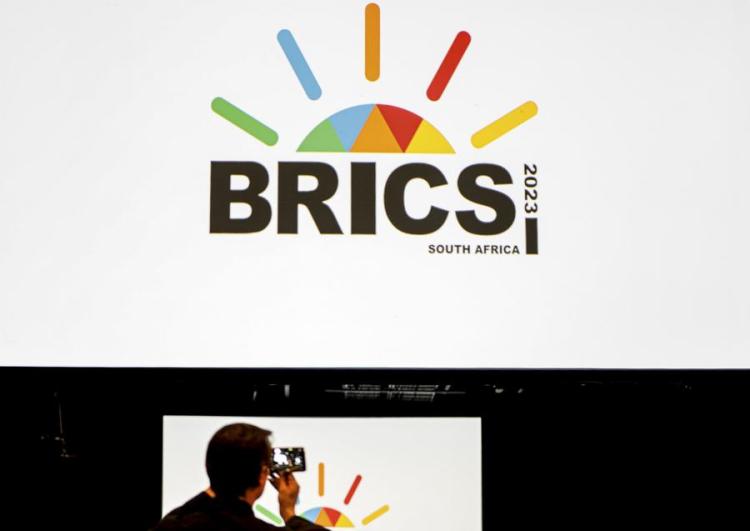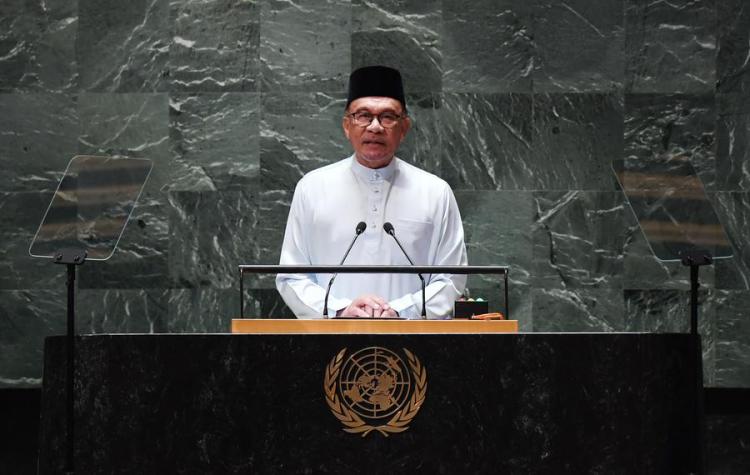South-South cooperation keeps fortifying, rightfully and necessarily so
The BRICS cooperation mechanism, the BRI and other active cooperation innovations among Global South countries can be seen as a positive force for promoting the building of a more inclusive economic globalization that benefits all.

The upbeat momentum of South-South cooperation recently got a new boost, as the list of countries keen to join the BRICS keeps expanding, making the mechanism an increasingly critical force in building a multilateral world.
In June, Malaysia and Thailand declared intentions to join the BRICS cooperation mechanism. Originally formed by Brazil, Russia, India, China and South Africa, the group welcomed Saudi Arabia, Egypt, the United Arab Emirates, Iran and Ethiopia as new BRICS members on Jan. 1, 2024, doubling its membership from five to 10 and accounting for half the world's population and two-fifths of trade.
The Belt and Road Initiative (BRI) has also demonstrated strong cohesion and development prospects. Brazilian President Luiz Inacio Lula da Silva has revealed that his administration was putting together a proposal to join the BRI.
Behind the renewed momentum of South-South cooperation is the developing world's growing consensus on boosting development through cooperation in the face of rising global protectionism and unilateralism. Moreover, those Western developed economies are attempting to "kick away the ladder," aiming to solidify the "center-periphery" global division of labor. Through various means, they seek to keep the Global South locked into the lower end of the value chain. Their actions have provoked strong dissatisfaction among Global South nations.
Similar historical experiences, common development goals, and similar positions on international affairs have led Global South countries to respect each other's chosen development paths, view each other's differences with an open mindset and spirit of cooperation, treat each other as equals, and advance together.
Over the years since its inception, the BRI has grown into a vital global development platform, particularly for nations in the Global South, fostering mutually beneficial cooperation. The initiative, which adheres to the principles of extensive consultation, joint contribution, and shared benefits, also contributes to infrastructure connectivity in developing countries.
From the Jakarta-Bandung High-Speed Railway to the China-Pakistan Economic Corridor, the BRI projects have helped connect Global South countries to the world and embark on a "fast track" to poverty alleviation and prosperity.
The BRICS cooperation mechanism is also flourishing. BRICS members keep deepening strategic partnerships as well as unity and cooperation with other emerging market countries and developing countries, and are taking new strides towards solidarity.

"Aside from existing relations and cooperation, there are benefits for us to open new spaces, especially in terms of the Global South agenda," said Malaysian Prime Minister Anwar Ibrahim recently.
Joining the BRICS countries will enhance Thailand's international status and increase Thailand's opportunities on the international stage, said government spokesman Chai Wacharonke.
The BRICS cooperation mechanism, the BRI and other active cooperation innovations among Global South countries can be seen as a positive force for promoting the building of a more inclusive economic globalization that benefits all.
Data shows that emerging market economies and developing countries have contributed as much as 80 percent to global economic growth in the past 20 years, with their share of global GDP increasing from 24 percent to over 40 percent in the past 40 years.
It is reasonable to believe that as the scope and scale of South-South cooperation continue to expand, the spirit of South-South cooperation demonstrated by BRICS cooperation and the BRI, characterized by equality, mutual trust, mutual benefit, unity, and mutual assistance, will become even more attractive and inspiring.
Expanding South-South cooperation will further advance the international order in a more just and equitable direction, enabling global development cooperation to yield more fruitful results.
